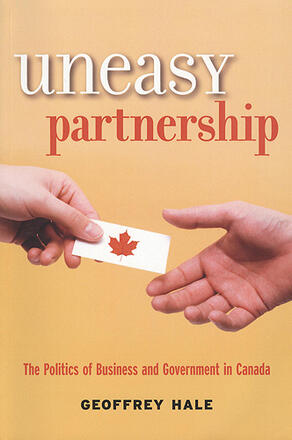
Uneasy Partnership
The Politics of Business and Government in Canada
La description
Uneasy Partnership unravels the mutually dependent relationship between business and government in Canada. Governments depend on business investment for economic growth vital to the prosperity of their citizens, the generation of tax revenues, and enough public satisfaction to win them periodic re-election. Businesses depend on governments for more-or-less stable sets of rules that are necessary for success. They often look to governments for protection against threats to their well-being and for assistance in competing with other businesses.
Geoffrey Hale begins examining this relationship by considering the influence of political, economic, and societal ideas on the government’s place in the economy along with the history of Canadian economic development. He continues by examining the effects of political and economic structures on the workings of the economy and on relations between business and governments. Finally, Hale discusses the interaction of the political marketplace—including organized business interests and individual businesses—with the policy process, including the influence of interest group politics on public opinion, the role of the courts and tribunals on law and policy, and political parties.